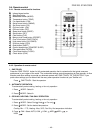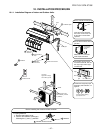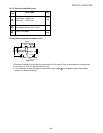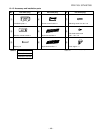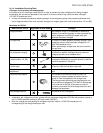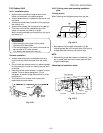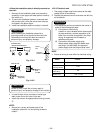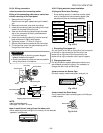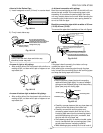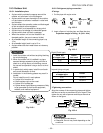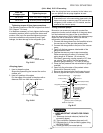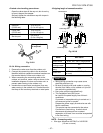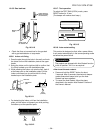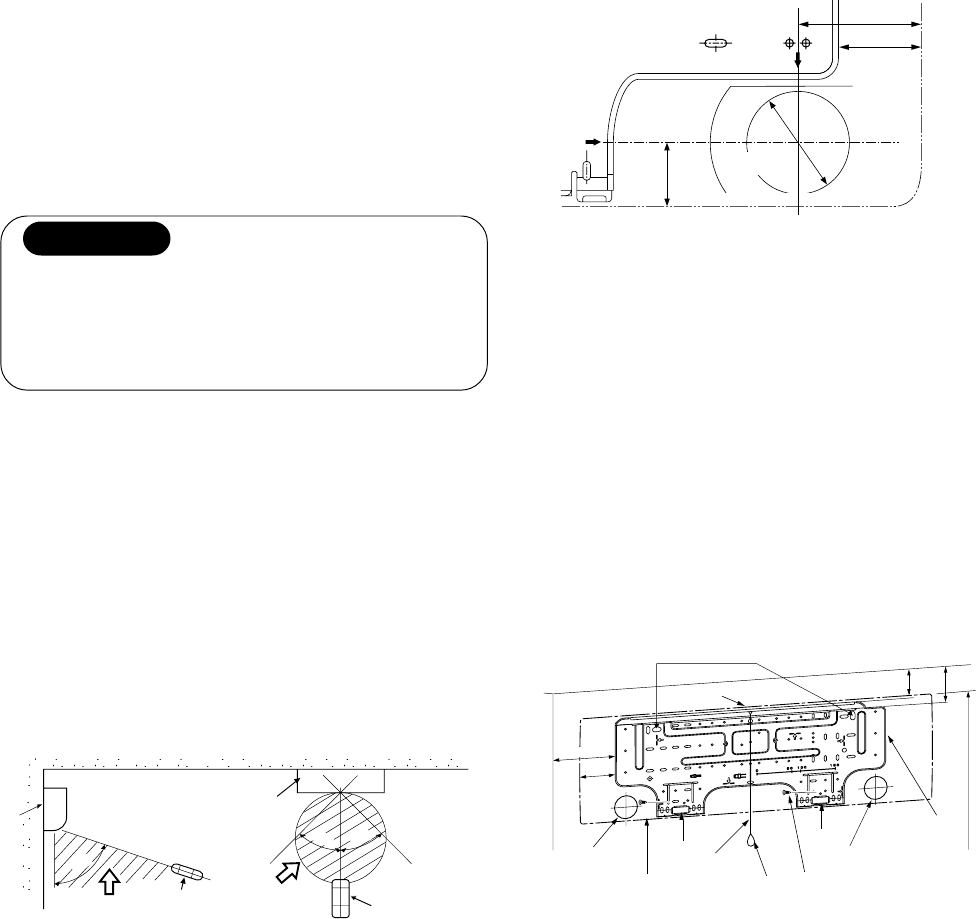
– 51 –
FILE NO. SVM-07008-1
10-2. Indoor Unit
10-2-1. Installation place
• A place which provides the spaces around the
indoor unit as shown in the above diagram.
• A place where there is no obstacle near the air inlet
and outlet.
• A place that allows easy installation of the piping to
the outdoor unit.
• A place which allows the front panel to be opened.
• The indoor unit shall be installed as top of the
indoor unit comes to at least 2 m height.
Also it must be avoided to put anything on the top of
the indoor unit.
CAUTION
• Direct sunlight to the indoor unit’s wireless
receiver should be avoided.
• The microprocessor in the indoor unit should not
be too close to RF noise sources.
(For details, see the owner’s manual.)
<Remote controller>
• A place where there are no obstacles such as a
curtain that may block the signal from the indoor
unit.
• Do not install the remote control in a place exposed
to direct sunlight or close to a heating source, such
as a stove.
• Keep the remote control at least 1 m apart from the
nearest TV set or stereo equipment. (This is
necessary to prevent image disturbances or noise
interference.)
• The location of the remote control should be
determined as shown below.
Fig. 10-2-1
(Top view)
Indoor unit
Reception
range
Reception
range
Remote
control
Remote
control
(Side view)
10-2-2. Cutting a hole and mounting installation
plate
<Cutting a hole>
When installing the refrigerant pipes from the rear.
Fig. 10-2-2
1. After determining the pipe hole position on the
mounting plate (A), drill the pipe hole (∅65 mm) at
a slight downward slant to the outdoor side.
NOTE:
• When drilling a wall that contains a metal lath, wire
lath or metal plate, be sure to use a pipe hole brim
ring sold separately.
<Mounting the installation plate>
Fig. 10-2-3
Indoor unit
45°
4
5
°
75
°
90 mm
66 mm
65 mm
42 mm
Pipe hole
62
85
82.5
170
Anchor bolt holes
Hook
Pipe hole
Indoor unit
Thread
Hook
Weight
Pipe hole
7 Mounting screw
Hook
1
Installation
plate
2 m or more from floor



